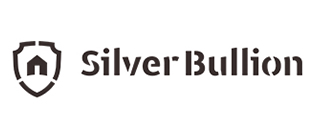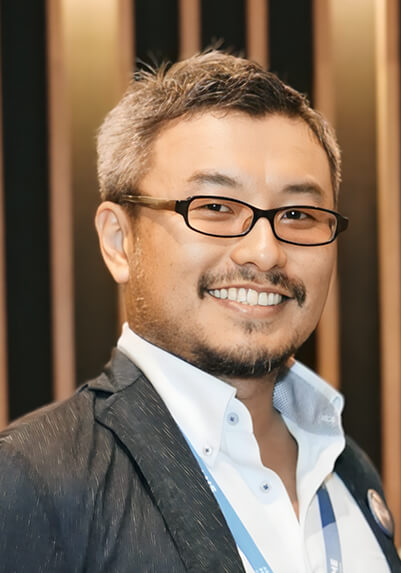Navigate
Article List
- SBMA News
By Albert Cheng, CEO, SBMA
- Gold Market Integrity: Advancing Global Standards
By Sakhila M. Mirza, Executive Board Director and General Counsel, London Bullion Market Association (LBMA)
- Shanghai Gold Exchange: Building a Better Future for the Global Gold Market
By Jiao Jinpu, Chairman, Shanghai Gold Exchange
- Feature | WGC – Year in Review
By Andrew Naylor, Head of ASEAN and Public Policy, World Gold Council
- Gold Investments During a Recession: Be Sure of What Lies Beneath
By Gavin Soon, Senior Sales Manager Asia, Hitachi High-Tech Analytical Science
- The Future of the Gold Investor
By Vikas Shenoy, Head of APAC Origination & Partnerships, InfiniGold
- Platinum Set to Soar
By Weibin Deng, Head, Asia Pacific, World Platinum Investment Council
- Further Upside for Precious Metals Prices in 2021
By Nikos Kavalis, Founding Partner, Metals Focus
- Improving Gold’s Physical and Digital Traceability
By Abhinav Ramesh, Founder, Chainflux
Article List
- SBMA News
By Albert Cheng, CEO, SBMA
- Gold Market Integrity: Advancing Global Standards
By Sakhila M. Mirza, Executive Board Director and General Counsel, London Bullion Market Association (LBMA)
- Shanghai Gold Exchange: Building a Better Future for the Global Gold Market
By Jiao Jinpu, Chairman, Shanghai Gold Exchange
- Feature | WGC – Year in Review
By Andrew Naylor, Head of ASEAN and Public Policy, World Gold Council
- Gold Investments During a Recession: Be Sure of What Lies Beneath
By Gavin Soon, Senior Sales Manager Asia, Hitachi High-Tech Analytical Science
- The Future of the Gold Investor
By Vikas Shenoy, Head of APAC Origination & Partnerships, InfiniGold
- Platinum Set to Soar
By Weibin Deng, Head, Asia Pacific, World Platinum Investment Council
- Further Upside for Precious Metals Prices in 2021
By Nikos Kavalis, Founding Partner, Metals Focus
- Improving Gold’s Physical and Digital Traceability
By Abhinav Ramesh, Founder, Chainflux
Feature | WGC – Year in Review
By Andrew Naylor, Head of ASEAN and Public Policy, World Gold Council
Published on January 12, 2021


ANDREW NAYLOR joined the World Gold Council in 2016 and is responsible for the its activities in the region – institutional investment, government relations, and public policy initiatives. Prior to this role, he worked for international consultancy firm Cicero Group advising financial institutions on foreign investment and trade policy in Asia and regulatory reform. Andrew has been a board member of the European Chamber of Commerce in Singapore since 2012 and was chairman of its financial services committee from 2012 to 2014, and treasurer from 2014 to 2016. Andrew has a degree from the London School of Economics and Political Science. In his spare time Andrew enjoys sailing, and volunteers for Singapore’s National Parks Board (NPB) and the LSE Alumni Association of Singapore (LSEAAS).
In this unprecedented year, gold has once again come to the fore as the asset of choice for investors looking for safety, diversification and portfolio growth and protection. Whilst consumer demand has declined, primarily due to coronavirus-related lockdowns and the record-high gold price, investment demand has offset these weaknesses. A combination of economic uncertainty and a low interest rate environment will likely be supportive of gold going forward.
INVESTMENT DISTRIBUTION
One of the World Gold Council’s strategic priorities is making the case for gold to institutional asset managers and owners worldwide. To that end we have built out an investment marketing and distribution function in Singapore to focus on institutional asset ownership in the country and the region. Over US$3.5 trillion of assets are managed out of Singapore, making it one of the top wealth management centres globally.
To increase awareness of the role of gold in portfolios we have produced a number of tools and reports this year, including one on the case for gold in Singapore – our research team analysed a typical SGD-denominated portfolio and assessed the impact and relevance of an allocation to gold. Looking ahead to 2021, we will be launching similar analysis for other markets, including Australia, and we will be publishing our annual outlook in January.
We recently updated Qaurum, our gold valuation framework and web-based quantitative tool that helps investors intuitively understand the drivers of gold’s performance. Specifically, Qaurum demonstrates how gold may react across different macroeconomic environments.
SINGAPORE MARKET DEVELOPMENT RECOMMENDATIONS
As part of our market development work we undertook a survey of bullion market participants and stakeholders earlier this year. The purpose of the survey was to identify new opportunities for gold market growth in Singapore, building on the work that has already been undertaken here through the leadership of SBMA.
Following the survey, we launched a set of recommendations designed to catalyse additional demand for gold (both retail and institutional) and promote Singapore as a regional gold hub. These recommendations included positioning gold in financial sector industry development initiatives such as wealth management and fintech, codifying best practices for retail gold products to boost consumer trust and confidence, and working towards industry agreement on kilobar integrity.
RETAIL GOLD INVESTMENT PRINCIPLES
The retail market is a key driver of gold demand, particularly here in Asia, which collectively accounts for over 50% of global consumer demand. To ensure the retail market operates to the highest of standards, and that trust and confidence in the sector is maintained, we created a set of principles for the retail gold market, the Retail Gold Investment Principles (RGIPs). These principles are designed to set the bar for product providers across the market and further encourage retail investors to place their trust in gold. It is envisaged that greater trust will benefit customers and product providers alike, creating value and driving demand across the retail gold industry.
The RGIPs are aimed primarily at the providers of unregulated gold investment products, encouraging best practice, so that customers can feel confident in this important market segment. We are working on a roll-out programme in some of the most important retail markets including India and Germany, and we will be engaging with industry in Singapore, the rest of Southeast Asia, and Australia in the coming months.
SUSTAINABILITY
Sustainable finance has been, and will continue to be, a major driver of industry behaviour. The World Gold Council and its members have long believed that responsible gold mining can support sustained socio-economic development for the communities and countries that host gold mining operations. Last year we launched the Responsible Gold Mining Principles (RGMPs) – a new framework that set out clear expectations for consumers, investors and the downstream gold supply chain as to what constitutes responsible gold mining.
To build on this, and raise awareness of the positive action the industry is taking, we released a new report on gold mining’s contribution to the UN Sustainable Development Goals (SDGs). The report looks at how World Gold Council members are bringing about positive change across four thematic areas: global partnerships, social inclusion, economic development, and responsible energy use and environmental stewardship. The report also shines a spotlight on three topical themes including artisanal and small-scale mining (ASM), how the pandemic has reinforced the premise of the SDGs, and gold’s role in new technologies, including those supporting the energy transition.

ANDREW NAYLOR joined the World Gold Council in 2016 and is responsible for the its activities in the region – institutional investment, government relations, and public policy initiatives. Prior to this role, he worked for international consultancy firm Cicero Group advising financial institutions on foreign investment and trade policy in Asia and regulatory reform. Andrew has been a board member of the European Chamber of Commerce in Singapore since 2012 and was chairman of its financial services committee from 2012 to 2014, and treasurer from 2014 to 2016. Andrew has a degree from the London School of Economics and Political Science. In his spare time Andrew enjoys sailing, and volunteers for Singapore’s National Parks Board (NPB) and the LSE Alumni Association of Singapore (LSEAAS).
* This article was published in partnership with World Gold Council

























